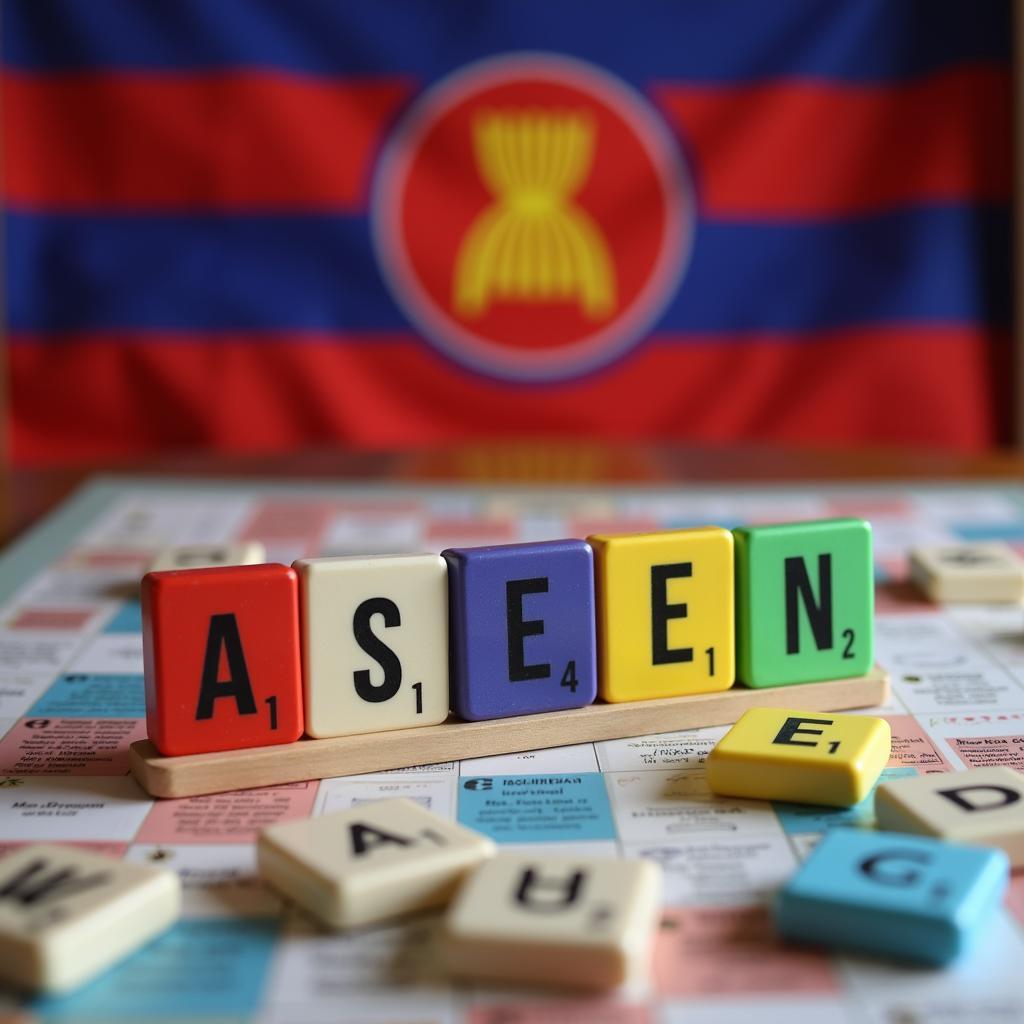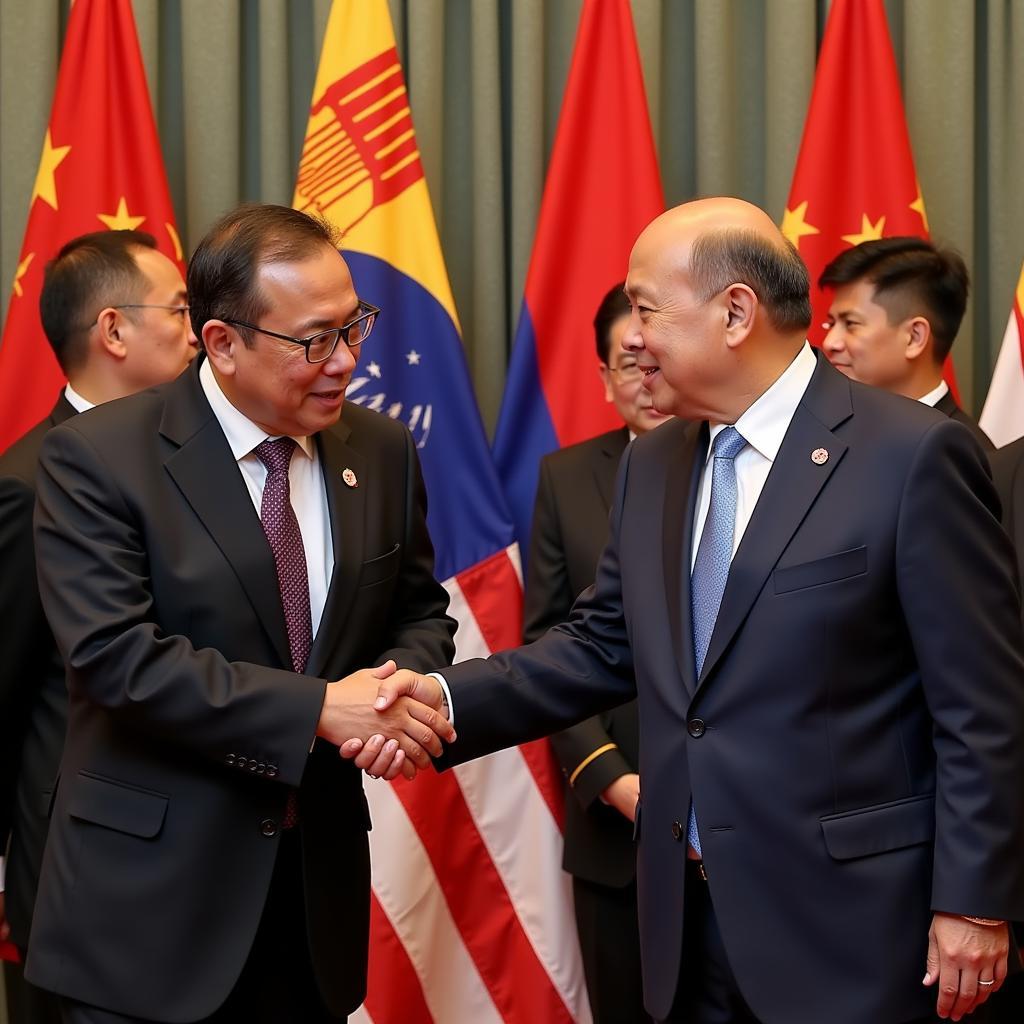The ASEAN Regional Forum (ARF) plays a vital role in maintaining peace and stability within the Asia-Pacific. Established in 1994, the ARF has evolved into a key platform for dialogue and cooperation on political and security issues, bringing together 27 members committed to fostering a secure and prosperous region.
The Importance of ASEAN ARF in the Asia-Pacific
The ARF’s significance stems from its inclusive nature, bringing together ASEAN member states and their dialogue partners, including major powers like the US, China, Russia, and India. This diverse membership allows for open communication and the exchange of perspectives on critical security challenges. The forum’s emphasis on consensus-building and preventative diplomacy helps to manage tensions and prevent conflicts from escalating.
Key Objectives and Principles of the ASEAN ARF
The asean arf members operate under a set of core principles, including respect for sovereignty, non-interference, and peaceful settlement of disputes. These principles underpin the ARF’s efforts to build trust and confidence among its members. Key objectives include promoting confidence-building measures, developing preventive diplomacy mechanisms, and enhancing cooperation on non-traditional security issues like counter-terrorism, cybersecurity, and disaster relief.  ARF Members Collaborating on Security Issues
ARF Members Collaborating on Security Issues
Evolution and Achievements of the ASEAN ARF
Since its inception, the asean arf has made significant strides in fostering regional security. From its initial focus on confidence-building measures, the forum has expanded its agenda to address a broader range of security challenges. The ARF has played a crucial role in promoting dialogue on the South China Sea dispute, facilitating cooperation on counter-terrorism efforts, and enhancing regional disaster management capabilities. The asean arf 2018 meeting, for instance, saw significant discussions on the evolving security landscape and the need for enhanced cooperation in cybersecurity.
What are the main challenges facing the ASEAN ARF?
Despite its achievements, the ARF faces several challenges, including the diverse interests of its members, the complex geopolitical dynamics of the region, and the lack of a formal dispute resolution mechanism. However, the ARF’s continued commitment to dialogue and cooperation remains essential for managing these challenges and maintaining regional stability.
“The ARF’s ability to bring together such a diverse group of nations is a testament to its importance,” says Dr. Amelia Nguyen, a leading expert on Southeast Asian security. “While challenges remain, the forum provides a crucial platform for dialogue and cooperation, which is essential for navigating the complex security landscape of the Asia-Pacific.”
How does ASEAN ARF contribute to regional stability?
The ARF’s contribution to regional stability is multifaceted. It fosters open communication, promotes preventive diplomacy, and facilitates practical cooperation on a wide range of security issues. The forum’s focus on confidence-building measures helps to reduce mistrust and miscalculation among its members.
What is the future of ASEAN ARF?
The future of the ARF lies in its ability to adapt to the evolving security challenges facing the region. The forum must continue to strengthen its mechanisms for preventive diplomacy, enhance cooperation on non-traditional security issues, and find ways to address the complex geopolitical dynamics of the Asia-Pacific. The asean arf 2017 and the asean arf 2019 meetings further solidified the forum’s dedication to these evolving challenges.
“The ARF needs to remain flexible and adaptable to effectively address the emerging security challenges,” adds Dr. Wei Zhang, a renowned scholar of international relations. “Strengthening its capacity for preventive diplomacy and fostering greater cooperation among its members will be key to its continued success.”
Conclusion
The Asean Arf is an indispensable platform for promoting peace and security in the Asia-Pacific. Its inclusive nature, commitment to dialogue, and focus on preventive diplomacy have made it a cornerstone of regional stability. While challenges remain, the ARF’s continued efforts to foster cooperation and build trust among its members are vital for navigating the complex security landscape and ensuring a peaceful and prosperous future for the region.
FAQ
- What does ARF stand for? (ASEAN Regional Forum)
- When was ARF established? (1994)
- How many members are there in ARF? (27)
- What are the main objectives of ARF? (Promoting confidence-building measures, developing preventive diplomacy mechanisms, and enhancing cooperation on non-traditional security issues.)
- What are some of the challenges facing ARF? (Diverse interests of its members, complex geopolitical dynamics, and lack of a formal dispute resolution mechanism.)
- How does ARF contribute to regional stability? (Fosters open communication, promotes preventive diplomacy, and facilitates practical cooperation on security issues.)
- What is the future of ARF? (Adapting to evolving security challenges, strengthening preventive diplomacy, and enhancing cooperation.)
When you need support, please contact Phone Number: 0369020373, Email: [email protected] Or visit us at: Ngoc Lien Village, Hiep Hoa, Bac Giang, Vietnam. We have a 24/7 customer service team.

